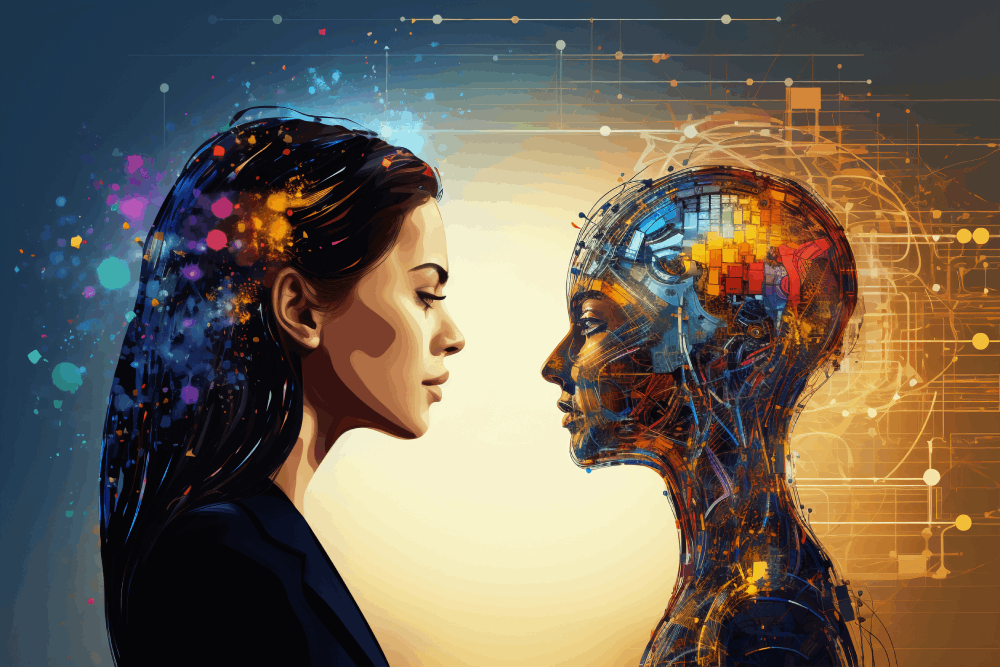 |
COMING SOON CATALOGUE ABOUT US CONTACT US HOME |
How AI can help rebuild social confidence after dating breaks

Experiencing a breakup often leaves lasting effects on self-confidence and willingness to dive back into the world of dating. Navigating this fragile period requires sensitivity, support, and sometimes creative approaches to rediscovering trust in new connections. AI companionship and virtual partners have emerged as unique resources for those seeking a safe or judgment-free space for expression and growth. Let’s explore how technology enhances rebuilding self-confidence and helps individuals heal emotionally while preparing to approach dating with renewed optimism.
Understanding the impact of breakups on social confidence
Breakups rarely leave anyone unchanged. Emotional wounds may result in doubt, reluctance to trust new people, and hesitation during communication. Many find themselves questioning their self-worth or losing faith in their ability to connect meaningfully.
The recovery journey tends to highlight vulnerabilities, especially related to social situations. Learning where confidence took a hit is an essential first step toward regaining trust and emotional growth. Recognizing patterns or triggers that cause insecurity makes it easier to address them later.
How AI creates a judgment-free zone for healing
One benefit of AI companionship and virtual partners is the neutral ground they offer. Unlike human friends who might judge or grow impatient, AI chatbots provide endless patience, empathy, and unbiased feedback. These digital interactions create a trusted environment where sensitive thoughts can be shared freely without fear of criticism or misunderstanding. More and more people discover dedicated tools like Kupid as effective means to open up in complete privacy and regain self-confidence at their own rhythm.
Using AI tools for emotional healing and support after breakup opens doors for honest self-reflection. Sharing feelings candidly, analyzing relationship outcomes, or even venting frustration comes with zero risk of gossip or negative repercussions.
Building routine check-ins and emotional processing
Several AI platforms allow users to schedule regular conversations focused on mood tracking, vulnerability, and progress updates. Regular reflection helps monitor healing steps and highlights moments worth celebrating. This structure gently supports rebuilding self-confidence and self-worth through evidence-based encouragement.
A consistent dialogue between sessions provides an anchor, making everyday challenges less daunting and progress more visible. Even small improvements—like articulating boundaries or smiling more every week—take on greater significance when tracked over time.
Offering nonjudgmental listening and advice for personal growth
AI-guided conversations mimic attentive listening. When tough questions or doubts arise, these programs respond thoughtfully, asking clarifying questions or proposing actionable steps. The absence of immediate judgment turns vulnerable admissions into learning opportunities, supporting emotional growth at an individualized pace.
Access to advice and clarity for relationships—from handling jealousy to understanding why certain patterns repeat—allows gentle navigation of old wounds. Exploring solutions reduces anxiety and amplifies readiness before entering future encounters.
Practicing social skills with virtual agents
Confidence grows best with repetition and constructive feedback. Virtual partners simulate real-life exchanges without high stakes, creating a low-pressure environment ideal for practicing social skills and communication after a breakup.
Structured practice enables experimentation with different conversational styles, responses to conflict, and strategies for showing empathy—all vital components in forming authentic new bonds.
Role-playing common dating scenarios
Virtual agents often integrate interactive role-play modules covering awkward first messages, addressing misunderstandings, or navigating disagreements. Gradually working through these scripts removes performance anxiety and equips individuals to manage conflict calmly.
Each session serves as both rehearsal and mirror, revealing areas for improvement and reinforcing positive behaviors. Successes—even in simulated formats—boost self-esteem and instill belief in future performance.
Reinforcing positive language and assertiveness
Generative AI models can provide scenario-based practice in asserting needs, setting boundaries, and expressing affection constructively. Witnessing affirmative phrases modeled repeatedly shapes healthier communication instincts.
Over time, adopting positive self-talk through guided suggestions contributes further to rebuilding self-confidence. Owning accomplishments and practicing kind self-reinforcement become second nature after frequent digital affirmation.
Optimizing dating profiles and digital communication
Crafting engaging online dating experiences can seem daunting post-breakup. Doubts about attractiveness, interests, or conversational spark may linger. Here, AI-driven feedback plays a crucial role by helping shape compelling profiles and optimize messaging tactics.
Receiving personalized guidance—from rewriting introductions to selecting photos—removes much of the guesswork. Boosting one’s digital presentation heightens openness to new social possibilities and reintroduces playfulness to the process.
- Profile audits based on tone, authenticity, and keyword appeal
- Message suggestions tailored to conversation starters
- Error correction and style checks for improved confidence
- Advice on timing responses and reading cues
Experience with well-crafted digital presence translates into bolder, more relaxed interactions—a key aspect when seeking genuine reconnection after heartbreak.
Encouraging emotional resilience and proactive growth
Emerging from relationship setbacks often involves reshaping perspectives and nurturing inner strength. AI-facilitated exercises foster emotional healing and active participation in personal development. Progress tracked through daily prompts lets users notice shifts in mindset, coping strategies, and attitudes toward connection.
Short-term wins—such as reaching out to a friend, scheduling a hobby, or simply enjoying solo activities—create momentum. As new habits form, confidence rebounds naturally and the allure of fresh adventures becomes stronger.
Developing routines to strengthen self-worth
Self-kindness flourishes when woven into habitual practice. Some AI routines prompt daily affirmations or gratitude journaling, cultivating optimism and self-acceptance. Linking achievements directly to individual effort nurtures pride in forward movement rather than focusing on setbacks.
As confidence builds, so does willingness to embrace risks and meet new people. Success stems from recognizing incremental victories and acknowledging progress beyond romantic milestones.
Guided exercises for managing difficult emotions
Tools like guided meditation, cognitive reframing, or stress reduction techniques bring emotional balance within reach. Diluting the sting of disappointment with practical steps keeps sadness from overshadowing hope.
Resolving or managing conflict becomes less intimidating after repeated, compassionate self-inquiry. Constructive introspection—whether through journaling prompts or supportive discussions—lays groundwork for steady emotional health.
Finding community and shared experience through AI
Isolation is frequently part of the post-breakup landscape, yet digital spaces counteract this effect. AI-powered forums or group chats enable interaction among others facing similar journeys, offering camaraderie without pressure.
These communities champion respectful discourse and celebrate rebirth, validating each participant’s journey back to wholeness. Over time, mutual encouragement facilitates broader personal and social expansion.
- Sharing stories about losses and lessons learned
- Swapping advice about regaining trust in oneself and others
- Supporting newcomers ready for emotional renewal
- Uplifting posts to mark milestones and breakthroughs
Steps to make the most of AI support after dating breaks
Embracing technology for healing does not demand sacrificing authenticity or gut instincts. For those ready to move forward, several practices ensure deeper results with AI companions and virtual partners:
- Set clear intentions for each interaction (practice empathy, try new greetings, tackle recurring worries)
- Balance digital practice with occasional real-world social challenges
- Pair routine check-ins with bonus activities fostering creativity or adventure
- Reflect regularly on emotional growth and emerging strengths
As consistency pays off, previously daunting social milestones begin to feel accessible again. Virtual rehearsals seamlessly bridge learning with action, turning small moments of courage into stepping stones for meaningful connection.